Inventor Ottmar Mergenthaler was born on May 11, 1854, in Hatchel, Kingdom of Württemberg (in present-day Germany). Mergenthaler invented the Linotype, a machine which made it quicker and easier to set complete lines of type for printing presses, revolutionizing printing in the 19th century.
Mergenthaler’s father was a schoolteacher and received little formal education after primary school. Yet he was a very bright child – his siblings called him “whiz kid.” When he was 13, he fixed a church clock that had been deemed unfixable by local watchmakers. The following year, Mergenthaler began an apprenticeship with a watchmaker (who was also his step-uncle). He was a quick learner and well-disciplined, able to draft technical drawings and patent applications. In fact, he so impressed his step-uncle, that he began paying him a year before his apprenticeship ended, which he had never done before.
In 1872, Mergenthaler was part of a wave of German immigrants that relocated to America. He secured a job in his step-cousin’s electronic equipment workshop, though he had no previous experience with it. He was a fast learner, however, and within two years rose to the rank of a manager. Mergenthaler became a US citizen in 1878 and his step cousin’s business partner in 1881, after the company was moved to Baltimore.
Mergenthaler then opened his own workshop in 1883. A few years earlier he had become interested in the printing industry. At the time, the printing process was slow and inefficient, and many sought a way to improve on this. Mergenthaler began creating a mechanical means for setting printing type, which would eliminate the time-consuming chore of setting it by hand.
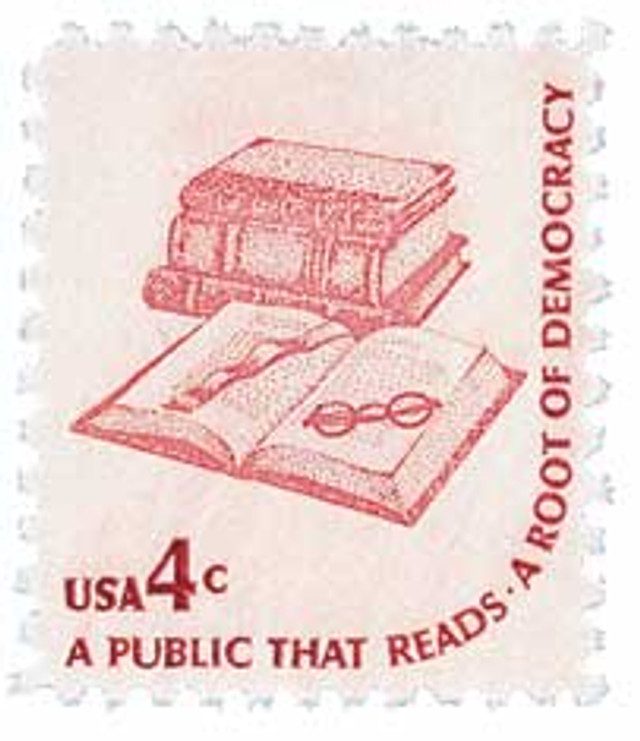
Mergenthaler accomplished this task by inventing the Linotype, a keyboard-operated machine that assembled metal molds of letters to create entire lines of text in a single unit. When a line was completed, the operator pressed a key which sent it to be cast in molten metal, usually lead. When the metal cooled, it formed a line of type with raised letters called a slug. Both the slug and the molds were automatically sorted by mechanical means. After it was used for printing, a slug was melted down and used again. He patented his machine in 1884 and the following year he was honored at a special event promoting his invention. Among the guests was President Chester A. Arthur.
The first 12 Linotype machines were installed at the New York Tribune in 1886. Linotypes quickly spread throughout the industry, reducing printing costs greatly, and lowering consumer prices for newspapers, books, and magazines. Mergenthaler’s machine was featured on the cover of Scientific American and by 1889, patent rights for it had been sold in Great Britain and Ireland.
Mergenthaler continuously re-worked and improve on his machine. Reportedly, Thomas Edison called his Simplex Linotype machine “The Eighth Wonder of the World.” By the mid-1890s, Mergenthaler’s health began to decline, suffering from tuberculosis. He moved to New Mexico and worked on his autobiography, before dying on October 28, 1899. Mergenthaler’s company continued after his death until it was taken over by a German firm in 1987.
| FREE printable This Day in History album pages Download a PDF of today’s article. Get a binder or other supplies to create your This Day in History album. |
Discover what else happened on This Day in History.

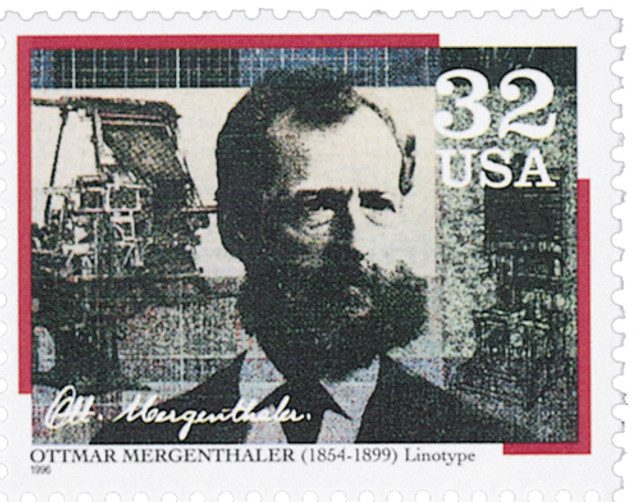

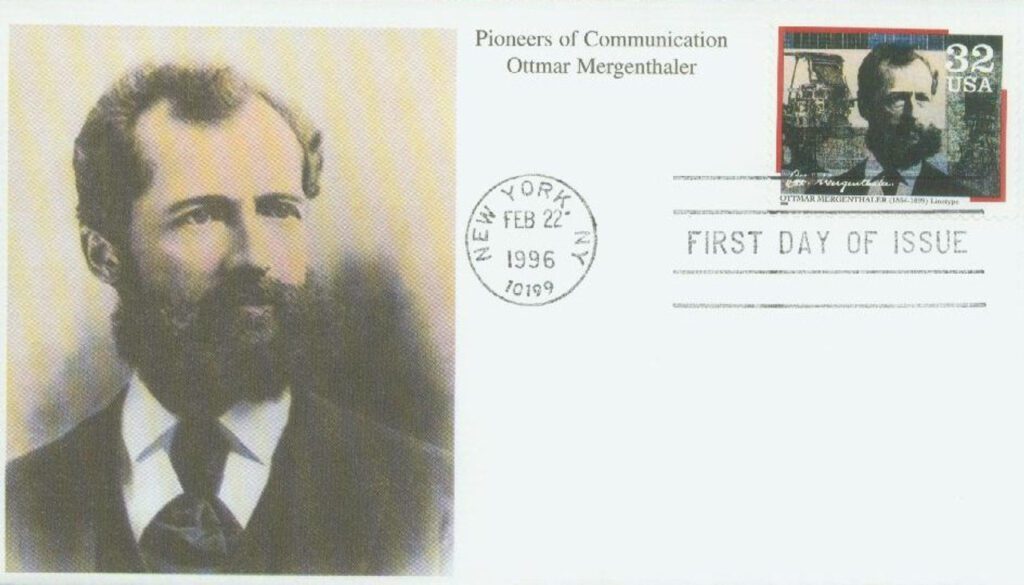
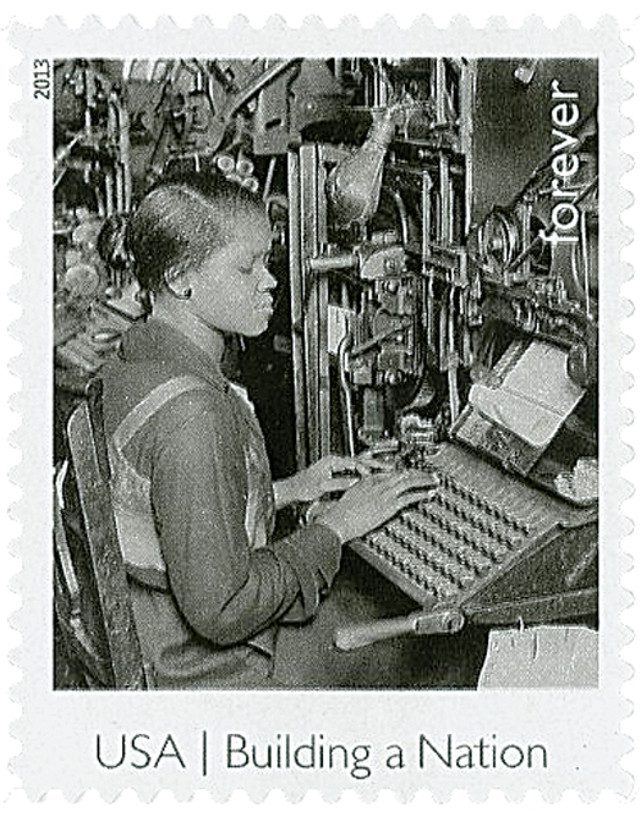
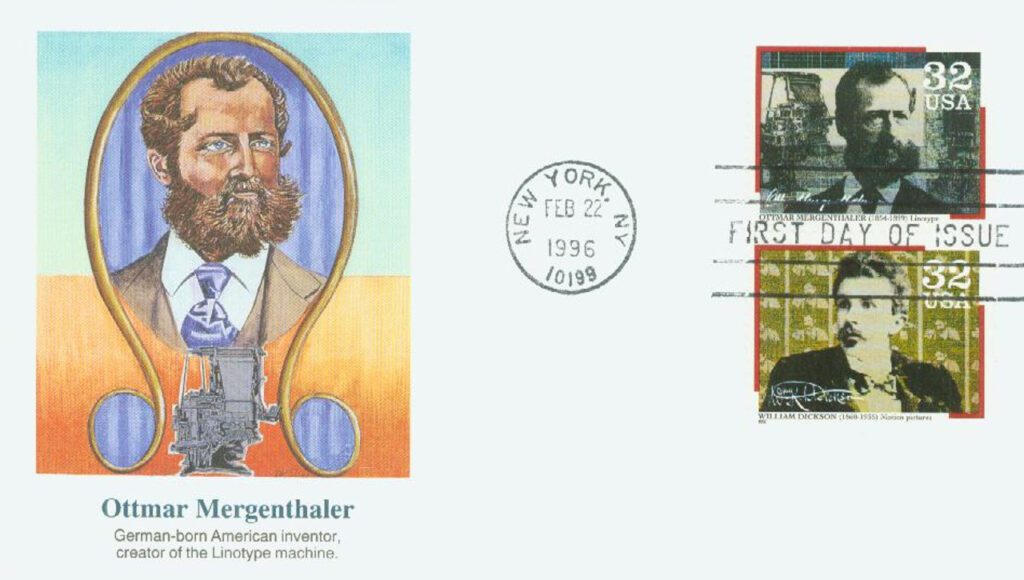
When I was a kid in the 60s we toured the Palo Alto Times and watched the Linotype operator, that was a fascinating machine. Then at the Hollister Free Lance when it was still a daily in the 70s, the linotype operator retired and they switched to the newer computer composition. I got to operate the linotype once before it was sold…. Fascinating machine.